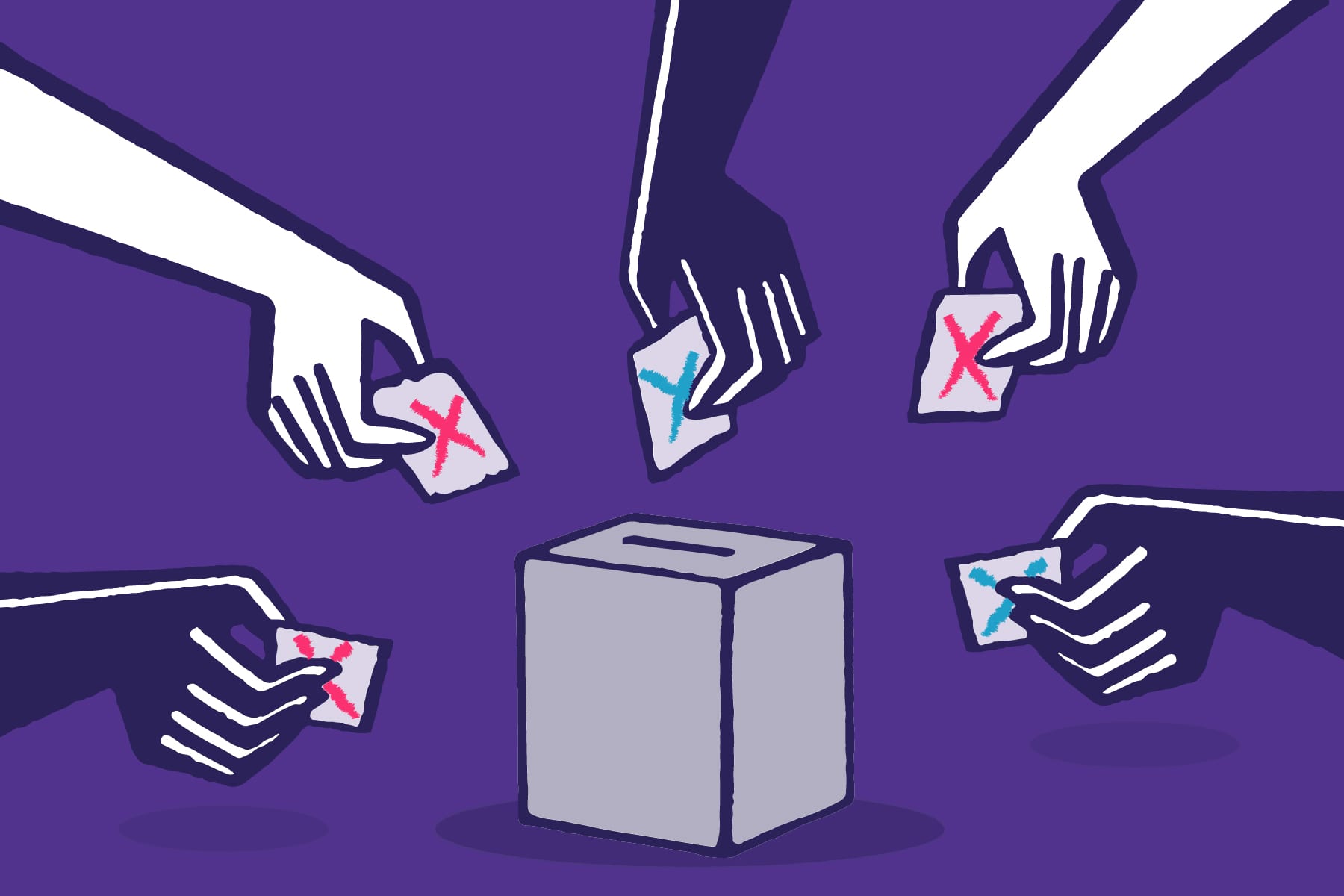A sweeping bill to curtail the influence of money in politics and protect access to the ballot box failed to clear a procedural hurdle in the U.S. Senate on Tuesday, complicating Democratic efforts to counter a slew of restrictive voting bills being advanced by Republican-controlled state legislatures.
Vice President Kamala Harris, who recently added voting rights to her portfolio, presided over the 50-50 party-line vote in the evenly divided Senate. Harris could not act as a tiebreaker because it was a procedural vote, known as the legislative filibuster, which requires 60 senators to support opening debate on a bill.
Harris will, in the coming days and weeks, continue to meet with voting rights advocates across the country to make the case that easing, and not restricting, access to the ballot box is essential to protecting democracy, according to a White House official.
The vice president has previously traveled to Greenville, South Carolina, and Atlanta, Georgia, to meet with voting-rights advocates. She will continue to meet with leaders in states where legislatures are considering or have passed bills to restrict voting access, the White House said.
“It is clear, certainly, for the American people, that when we’re talking about the right to vote it is not a Republican concern or a Democratic concern, it is an American concern, this is about the American people’s right to vote, unfettered,” Harris told reporters after the vote.
“The fight is not over,” she added.
Democratic Sen. Amy Klobuchar, chair of the Rules Committee that oversees the administration of federal elections, said before the vote that her panel would hold a series of field hearings on voting rights. That will include an examination of Georgia’s law enacted this year that imposes new identification requirements for absentee voters and limits the use of drop boxes.
“To my Republican colleagues: this is not the end of the line for this bill, this is only the beginning. Because if you had it your way, voters would not just be stuck at the end of the line but they wouldn’t be able to vote at all,” Klobuchar said in a speech on the Senate floor.
Georgia is one of at least 14 states that have enacted laws this year to restrict voting as of mid May, according to the Brennan Center for Justice, a progressive policy group that tracks voting access. There were nearly 400 bills introduced in 48 states with restrictive provisions during the same period.
White House Press Secretary Jen Psaki on Tuesday characterized it as a “wave of anti-voter laws based on the same repeatedly disproven lies that led to an assault on our nation’s Capitol.”
Psaki was referring to the mob that attacked the U.S. Capitol in January as lawmakers met to certify President Joe Biden’s valid victory in the November 2020 election. Democrats, and some Republicans, have said former President Donald Trump encouraged the insurrection by repeatedly and erroneously saying voter fraud cost him the election.
“They are putting these laws in place because they did not like the outcome and they’ve continued to perpetuate a lie about the outcome of the election,” Psaki told reporters, saying Biden would work with Harris to identify state legislators who want to expand voting access.
Republicans have argued that the For the People Act is not necessary and an unacceptable federal intrusion into states’ election administration. Supporting it would also likely draw criticism from Trump, who to a large extent remains the figurehead of the Republican Party even after his defeat. A top aide to Senate Minority Leader Mitch McConnell called the For the People Act “the worst piece of legislation I’ve ever laid eyes on.”
The House of Representatives approved its version of the measure, known as HR 1, in March. Speaker Nancy Pelosi said Republican opposition to the bill showed “they know that the only way for them to win elections is to suppress the vote.”
Senate Majority Leader Chuck Schumer said Republicans’ universal opposition to advancing the For the People Act meant “voter suppression has become part of the official platform of the Republican Party.”
“In the fight for voting rights, this vote was the starting gun, not the finish line,” Schumer said, adding: “We are going to explore every last one of our options.”
But Democrats have limited options in the Senate, where their chances of passing a voting bill are tied to efforts to change or get rid of the legislative filibuster, which requires support from 60 senators to advance nearly all legislation.
-
Read Next:
A handful of Democrats, with Sens. Joe Manchin of West Virginia and Kyrsten Sinema of Arizona being the most vocal among them, have said they are either reluctant or opposed to changing the Senate filibuster rule. Others have argued that protecting voting is so integral to preserving our democracy that it trumps the importance of Senate rules.
Sinema reiterated her position in a Washington Post op-ed on Monday night, noting that even though she co-sponsored the voting bill, she believes the filibuster “compels moderation and helps protect the country from wild swings between opposing policy poles.”
“Would it be good for our country if we did [eliminate the filibuster], only to see that legislation rescinded a few years from now and replaced by a nationwide voter-ID law or restrictions on voting by mail in federal elections, over the objections of the minority?” Sinema wrote.
More than 140 LGBTQ+ community leaders and activists in Arizona released an open letter on Monday calling on Sinema, who as the first out bisexual person elected to Congress received support from LGBTQ+ rights groups, to end the filibuster. On Tuesday, at least 10 people were arrested during a demonstration at Sinema’s state office organized by the Arizona Coalition to End the Filibuster.
Errin Haines contributed to this report.








